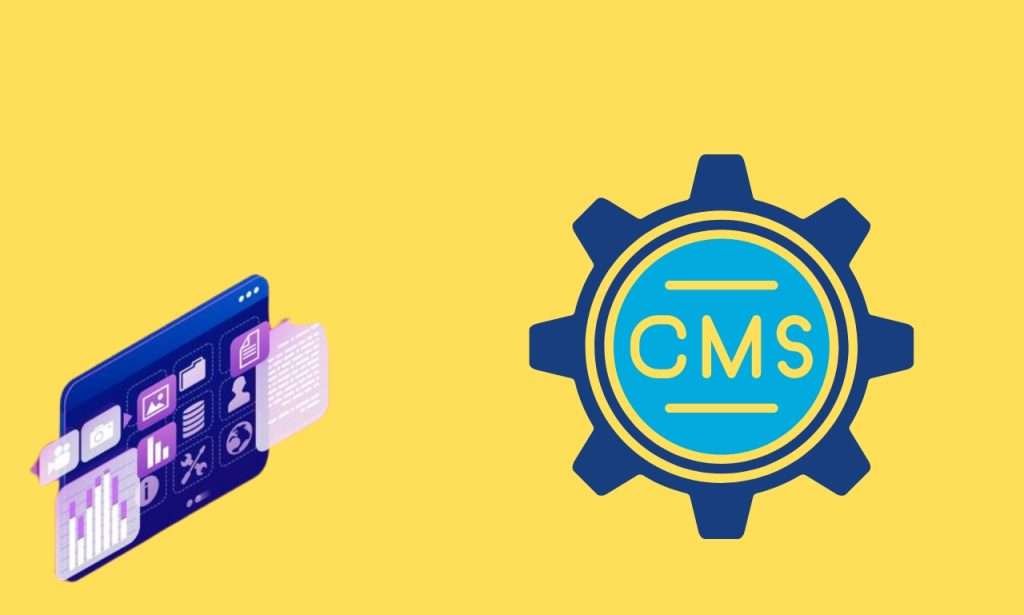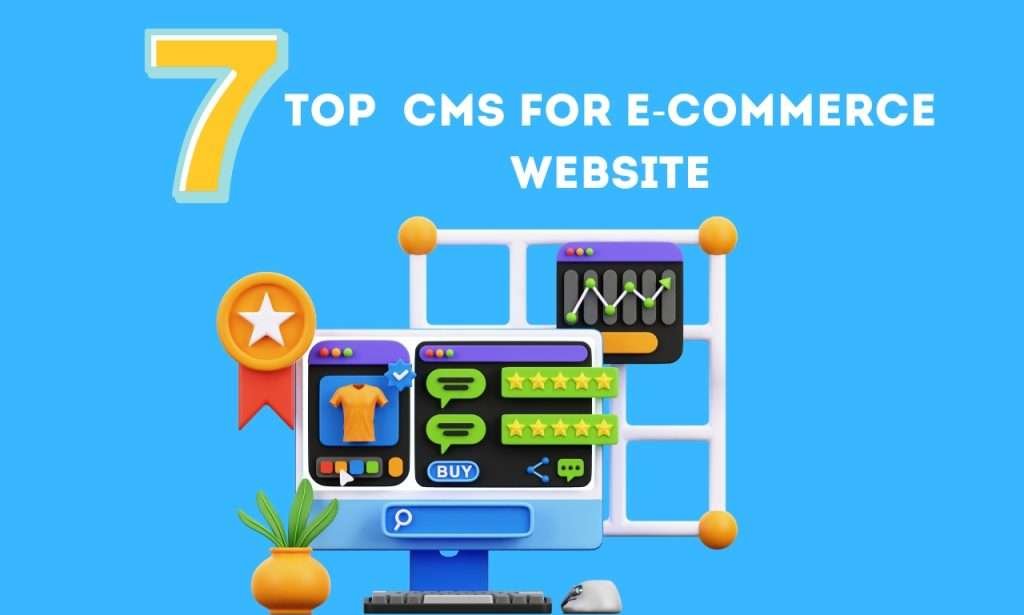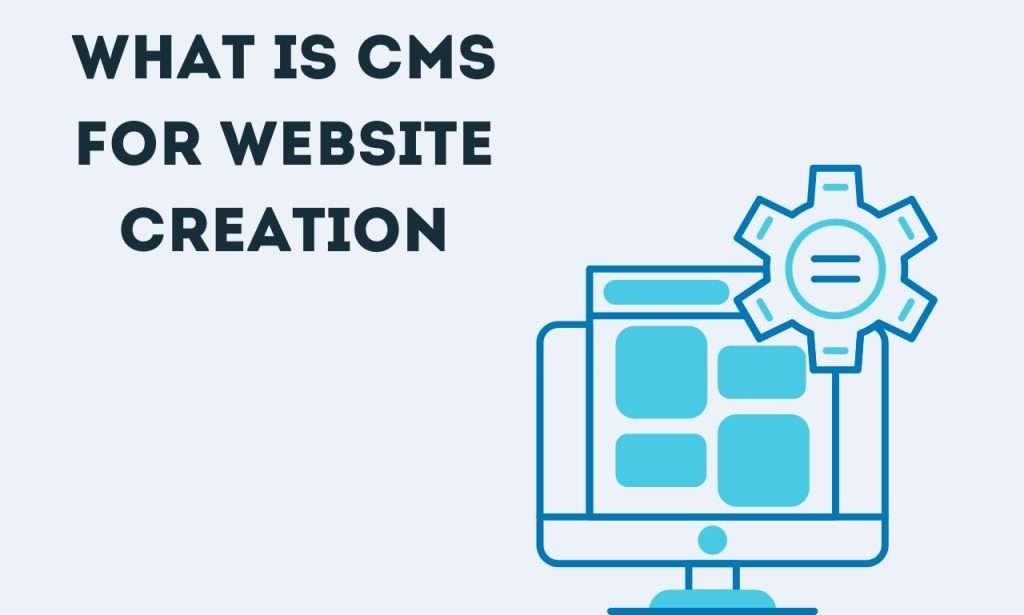In the world of digital entrepreneurship, developing a website is critical for installing region a web presence. Whether you’re building a blog, portfolio, or an e-change net internet site online, having the right tools at your disposal is essential. This is in which a Content Management System (CMS) comes into play. In this whole guide, we’ll delve into what a CMS is, why it’s crucial for net website introduction, and discover the top 7 CMS structures for e-alternate internet web sites.
What is cms for website creation
A Content Management System (CMS) is a software program software application software that allows customers to create, control, and alter virtual content material material cloth on a internet website on-line without requiring specialised technical know-how. Essentially, a CMS offers an interface for clients to characteristic and edit content, manipulate media, and perform severa administrative duties thru a customer-nice dashboard.
Key Features of a CMS:
- User-Friendly Interface: Most CMS systems characteristic a clean, intuitive interface that allows clients to feature and control content material fabric effortlessly.
- Content Creation and Management: CMSs permit clients to create, edit, and set up content along with text, photographs, and films.
- Templates and Themes: Many CMS systems provide some of pre-designed templates and trouble subjects.
- Plugins and Extensions: CMS systems regularly help plugins or extensions, which can be add-ons that beautify capability.
- User Management: CMSs offer options for dealing with unique user roles and permissions.
- SEO Tools: Built-in SEO features or plugins assist optimize content material for search engines, making it less difficult for customers to enhance their website online’s visibility.

Importance of cms for website creation
Using a CMS for website introduction offers numerous blessings that simplify the web improvement procedure. Here are some key motives why a CMS is vital:
1. Ease of Use:
CMS structures are designed with user-friendliness in mind. They permit people with little to no technical know-how to manipulate and update their websites successfully. This is mainly tremendous for small commercial enterprise proprietors, bloggers, and folks who need to preserve their sites regularly.
2. Cost-Effective:
A CMS may be a value-powerful solution for internet site creation. Many CMS systems provide free versions with vital functions, making them reachable to the ones on a good price range.
3. Flexibility and Customization:
CMS structures provide a variety of templates and issues that can be customized to fulfill unique desires. This flexibility permits customers to create precise and expert-searching web sites tailored to their brand.
4. Content Management:
Managing content material on a website may be complicated without a CMS. A CMS simplifies this procedure with the aid of providing gear to easily upload, edit, and arrange content.
5. Scalability:
CMS platforms can scale with your enterprise. Whether you are jogging a small weblog or a massive e-trade web site, a CMS can accommodate increase and changes in your website’s desires.
6. Search engine marketing Optimization:
Many CMS platforms include built-in search engine optimization tools or guide search engine optimization plugins. This helps users optimize their content for search engines like google and yahoo, improving visibility and driving traffic to their websites.
7. Security:
Reputable CMS structures provide ordinary updates and protection patches to defend towards vulnerabilities. Users additionally have the selection to install protection plugins or extensions for extra safety.
Can I create an eCommerce internet site for free
Yes, it’s far viable to create an e-trade website completely free, but there are some worries to maintain in thoughts. Many CMS platforms offer unfastened versions with simple e-commerce functionality, however those may also include boundaries inclusive of fewer features, restricted support, or the inclusion of the platform’s branding in your web page.
For a completely purposeful and expert e-commerce website, you may want to improve to a paid plan. Paid plans often provide additional capabilities such as custom domain names, superior e-commerce equipment, and top class support. Additionally, the use of a paid plan can enhance the credibility of your website and improve the general user revel in.
Is WordPress any good for eCommerce
WordPress is one of the most well-known CMS structures and is famend for its versatility and simplicity of use. It is an amazing preference for e-alternate internet websites, particularly even as paired with plugins like WooCommerce.
Advantages of Using WordPress for E-Commerce:
- WooCommerce Integration: WooCommerce is a effective e-trade plugin for WordPress that offers strong e-trade capability for your internet net page. It offers abilities which includes product manage, rate gateways, and delivery options.
- Customizability: WordPress gives a extensive type of topics and plugins that may be used to customise your e-trade internet site. Whether you want unique functionalities or a completely unique layout, there may be in all likelihood a plugin or subject to be had.
- Scalability: WordPress can cope with the entirety from small stores to big on-line stores. As your industrial organisation grows, you could add extra capabilities and scale your internet site because of this.
- Search engine optimization-Friendly: WordPress is well-known for its search engine advertising skills. Plugins like Yoast are seeking engine advertising and marketing and marketing can assist optimize your e-commerce net web web page for search engines like google, improving visibility and the usage of web site visitors.
- Community Support: WordPress has a big and active community, presenting huge sources, tutorials, and support for customers.
Limitations:
- Maintenance: While WordPress is person-pleasant, it requires regular renovation, along with updates to subject matters, plugins, and the center system to make sure security and overall performance.
- Performance: As you upload greater plugins and capabilities, performance can be affected. Optimizing and retaining web page velocity might also require additional effort.

Top 7 cms for e-commerce website
Choosing the right CMS on your e-alternate net site is essential for reaching your commercial business enterprise goals. Here are the pinnacle 7 CMS systems for e-alternate, every with its unique strengths and capabilities.
1. WordPress
WordPress is a versatile open-source CMS that powers over 40% of web sites. It offers sizable customization via hundreds of issues and plugins, which includes WooCommerce for e-trade. Key features include a person-pleasant dashboard, built-in SEO tools, and sturdy content management capabilities.
Pros:
- Highly Customizable: A big library of topics and plugins allows for tailor-made website online designs and functionalities.
- SEO-Friendly: SEO plugins like Yoast help improve search engine ratings.
- Large Community: A thriving network offers adequate help and assets.
- Scalable: Accommodates the entirety from small blogs to big e-commerce websites.
Cons:
- Maintenance: Frequent updates to WordPress core, themes, and plugins are important for security and overall performance.
- Performance: Can be slow if too many plugins are used or if now not optimized nicely.
2. Wix
Wix is a cloud-primarily based website builder recognised for its intuitive drag-and-drop interface. It offers loads of design templates, an included e-commerce platform, and app integrations to decorate website functionality. Key features consist of an clean-to-use editor, search engine marketing tools, and responsive design alternatives.
Pros:
- User-Friendly: The drag-and-drop editor makes web page creation easy, even for beginners.
- Design Variety: Access to severa templates and customization options guarantees a professional appearance.
- Integrated Tools: Built-in e-trade functions and app integrations streamline functionality.
- Mobile Optimization: Sites are automatically optimized for mobile devices.
Cons:
- Limited Flexibility: Customization options may be limited in comparison to greater flexible platforms.
- Performance Issues: Some users report slower load instances with complex designs.
3. squarespace
Squarespace is a internet site builder recognized for its smooth, fashion designer-exceptional templates and ease of use. It affords included e-commerce capability, running a blog gear, and integrated search engine marketing features. Key features consist of a drag-and-drop editor, customizable layout options, and 24/7 customer support.
Pros:
- Elegant Design: High-first-class, professionally designed templates make sure a polished, current look.
- User-Friendly: Intuitive drag-and-drop interface makes website advent on hand.
- Built-In E-Commerce: Comprehensive equipment for coping with merchandise, payments, and orders.
- Support: 24/7 customer service and great help assets are to be had.
Cons:
- Limited Customization: While templates are stylish, they offer much less flexibility as compared to some other systems.
- Higher Cost: Pricing may be higher, specifically for superior e-trade capabilities.
4. Magento
Magento, now part of Adobe Commerce, is a powerful open-supply e-trade platform designed for scalability and customization. It gives advanced capabilities like multi-shop control, significant product catalog talents, and sturdy analytics. Magento gives bendy product control, integrated SEO gear, and support for multiple languages and currencies.
Pros:
- Highly Customizable: Extensive customization alternatives thru issues and modules cater to complex business wishes.
- Scalable: Suitable for big corporations with excessive visitors and complicated product catalogs.
- Advanced E-Commerce Features: Robust tools for product control, consumer segmentation, and reporting.
- Community and Enterprise Editions: Offers both open-source and premium solutions for diverse business sizes.
Cons:
- Complexity: Requires technical knowledge for setup and customization, which may be difficult for beginners.
- Cost: The corporation version can be steeply-priced, and web hosting and upkeep fees can add up.
5. Volusion
Volusion is an e-trade platform designed for constructing and managing on line stores. It offers features like customizable templates, integrated fee processing, inventory management, and search engine marketing tools. Users advantage from an integrated app marketplace and real-time analytics.
Pros:
- Ease of Use: User-pleasant interface with truthful setup for on-line shops.
- Integrated E-Commerce Tools: Built-in features for dealing with stock, orders, and payments streamline operations.
- Templates and Customization: Offers quite a number customizable templates to in shape diverse commercial enterprise desires.
- Customer Support: Provides 24/7 guide and resources to help with troubleshooting.
Cons:
- Limited Scalability: May now not manage very large catalogs or high visitors volumes as correctly as some competitors.
- Pricing: Higher-tier plans can be pricey and can include features that are not needed via all users.
6. Shopify
Shopify is a leading e-trade platform renowned for its ease of use and strong functionality. It affords capabilities such as customizable storefronts, integrated fee processing, inventory control, and big app integrations. Shopify supports a couple of sales channels, inclusive of social media and on line marketplaces.
Pros:
- User-Friendly: Intuitive interface and setup procedure make it on hand for users of all talent degrees.
- Extensive App Store: Offers a huge variety of apps and integrations to extend capability.
- Responsive Support: 24/7 customer service and complete help sources.
- Scalability: Suitable for companies of all sizes, from small startups to large organizations.
Cons:
- Cost: Monthly fees can add up, in particular with extra apps and functions.
- Transaction Fees: Additional fees observe if no longer the use of Shopify Payments.
7. OpenCart
OpenCart is an open-source e-trade platform known for its flexibility and simplicity of use. It offers functions consisting of a customizable storefront, multi-shop assist, full-size extensions, and built-in search engine optimization equipment. Users advantage from a person-friendly admin interface and a vast choice of topics and modules.
Pros:
- Free and Open-Source: No initial price for the platform itself, with a big network of developers.
- Customization: A extensive variety of extensions and themes lets in for significant customization.
- Multi-Store Capability: Manage multiple stores from a single admin interface.
- User-Friendly: Intuitive dashboard and straightforward setup system.
Cons:
- Performance: May require optimization for coping with huge catalogs and high visitors.
- Limited Built-In Features: Some superior functions may additionally require additional extensions.

Wrapping Up
In essence, a CMS (Content Management System) simplifies website advent and management, making it handy even for non-techies. For e-commerce, the proper CMS can make all of the difference. Whether you’re drawn to WordPress for its flexibility, Shopify for its ease of use, or Magento for its robust features, every platform offers unique strengths. Ultimately, the fine desire depends for your precise needs and dreams. Dive in, discover your options, and pick the CMS that looks like the proper fit in your online adventure!










